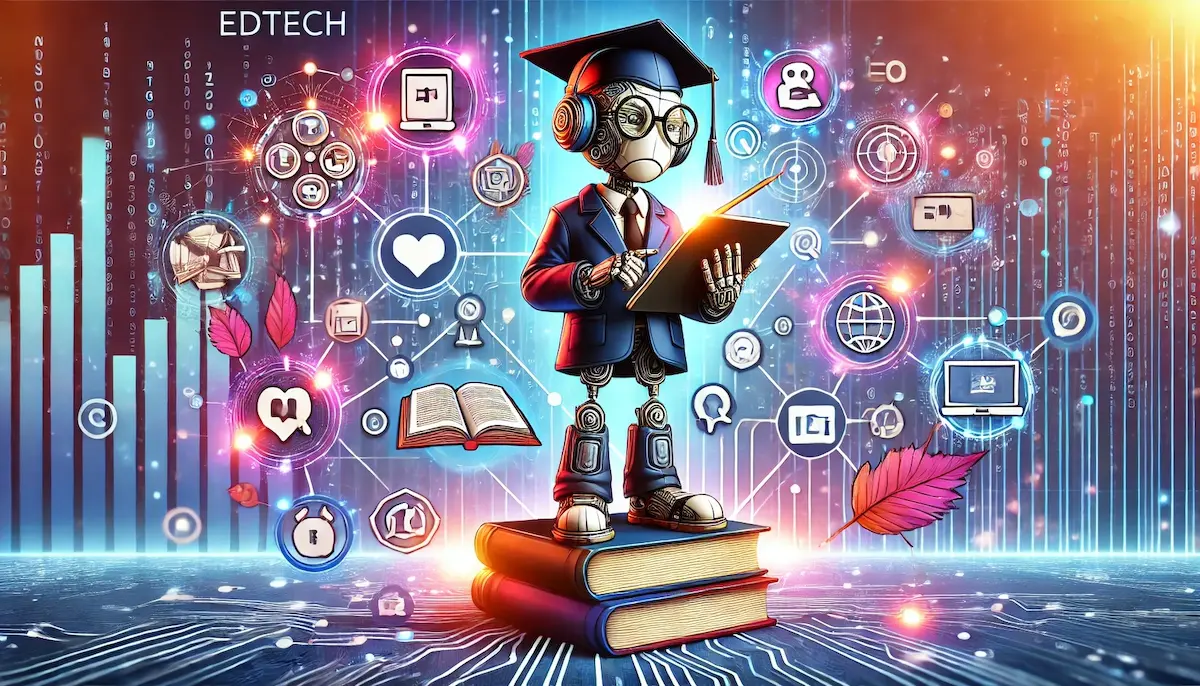Edtech, or educational technology, is a dynamic field that leverages digital tools and innovations to enhance learning and teaching experiences. By integrating technology into education, edtech aims to make learning more accessible, engaging, and effective. This article explores what edtech is, how it works, and its benefits and applications.
What Is Edtech?
Edtech refers to the use of technology to support and enhance education. This includes a wide range of tools and platforms, such as online learning management systems (LMS), educational apps, virtual classrooms, and interactive multimedia. Edtech is designed to improve the educational process for students, educators, and institutions by making learning more personalized, efficient, and collaborative.
How Does Edtech Work?
Edtech works by integrating various technological tools into the educational environment. Here are some key technologies and their applications in edtech:
Learning Management Systems (LMS)
An LMS is a software platform that facilitates the administration, documentation, tracking, reporting, and delivery of educational courses and training programs. Examples include Moodle, Canvas, and Blackboard.
Interactive Multimedia
Interactive multimedia includes videos, simulations, and games that make learning more engaging and interactive. These tools help students grasp complex concepts through visual and hands-on experiences.
Virtual and Augmented Reality (VR/AR)
VR and AR technologies provide immersive learning experiences. VR can simulate real-world environments, allowing students to explore and interact with content in a virtual space, while AR overlays digital information onto the physical world.
Online Courses and MOOCs
Massive Open Online Courses (MOOCs) and online courses offer flexible learning opportunities for students worldwide. Platforms like Coursera, edX, and Udacity provide access to courses from top universities and institutions.
Educational Apps
Educational apps offer a range of functionalities, from language learning and math practice to science experiments and coding tutorials. These apps are designed to make learning fun and accessible on mobile devices.
Adaptive Learning
Adaptive learning systems use algorithms to personalize the learning experience based on individual student performance. These systems adjust content and assessments to meet each student’s needs, ensuring effective learning outcomes.
Gamification
Gamification involves incorporating game-like elements, such as points, badges, and leaderboards, into the learning process. This approach increases motivation and engagement by making learning more enjoyable.
Benefits of Edtech
Personalized Learning
Edtech allows for personalized learning experiences tailored to individual student needs and learning styles. Adaptive learning technologies adjust content and pace based on student performance, ensuring that each learner receives the appropriate level of challenge and support.
Increased Engagement
Interactive multimedia, gamification, and immersive technologies like VR and AR make learning more engaging and interactive. These tools capture students’ attention and enhance their understanding of complex concepts.
Flexibility and Accessibility
Online courses and educational apps provide flexible learning opportunities that can be accessed anytime and anywhere. This makes education more accessible to students with diverse needs and schedules, including those in remote or underserved areas.
Improved Collaboration
Edtech tools facilitate collaboration among students and educators. Virtual classrooms, discussion forums, and collaborative projects enable students to work together, share ideas, and learn from each other, regardless of geographical barriers.
Enhanced Efficiency
Learning management systems streamline administrative tasks, such as grading, attendance tracking, and course management. This allows educators to focus more on teaching and less on paperwork.
Data-Driven Insights
Edtech provides valuable data on student performance and learning behaviors. Educators can use this data to identify strengths and weaknesses, monitor progress, and make informed decisions to improve teaching strategies and outcomes.
Applications of Edtech
K-12 Education
Edtech is widely used in K-12 education to enhance classroom instruction, support remote learning, and provide additional resources for students. Tools like interactive whiteboards, educational apps, and online homework platforms are common in schools.
Higher Education
In higher education, edtech supports online degree programs, blended learning, and research activities. Universities and colleges use LMS, virtual labs, and MOOCs to deliver quality education and expand their reach.
Corporate Training
Businesses use edtech for employee training and professional development. E-learning platforms, webinars, and virtual simulations provide effective and scalable training solutions for organizations.
Special Education
Edtech offers tailored solutions for students with special needs. Assistive technologies, such as speech-to-text software, communication devices, and sensory tools, help create inclusive learning environments.
Lifelong Learning
Edtech promotes lifelong learning by providing opportunities for continuous education and skill development. Online courses, educational apps, and digital libraries enable individuals to pursue new knowledge and careers at any stage of life.
Conclusion
Edtech is transforming the educational landscape by integrating technology into learning and teaching processes. From personalized learning and increased engagement to flexibility and data-driven insights, edtech offers numerous benefits that enhance educational experiences and outcomes. As technology continues to evolve, the potential for edtech to revolutionize education and make learning more accessible, effective, and enjoyable is immense.
Blockfine thanks you for reading and hopes you found this article helpful.
